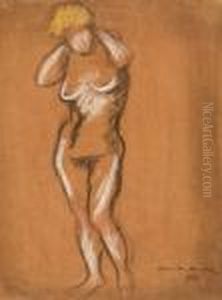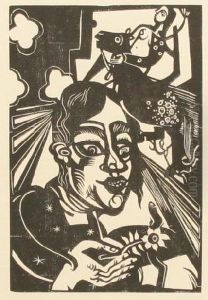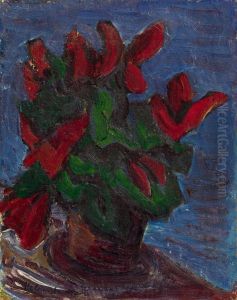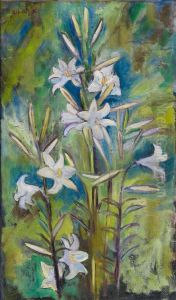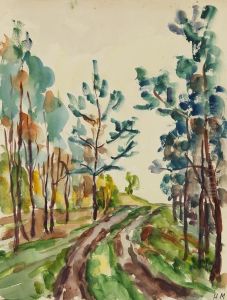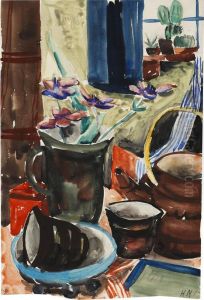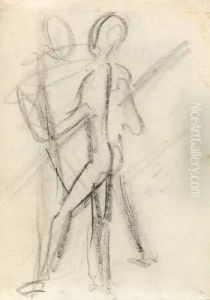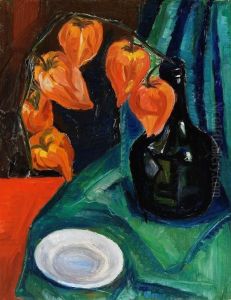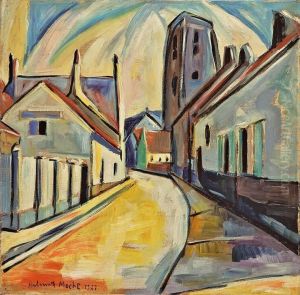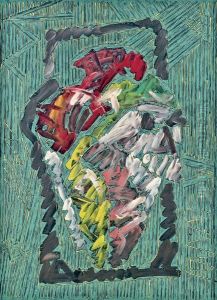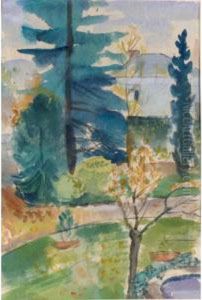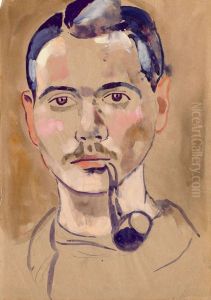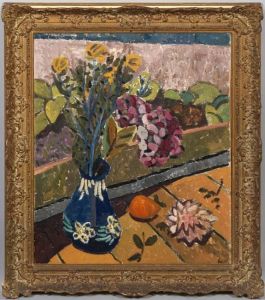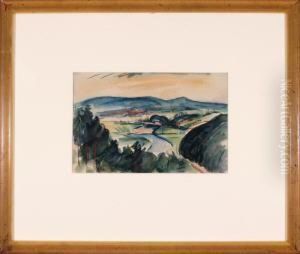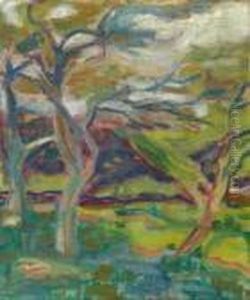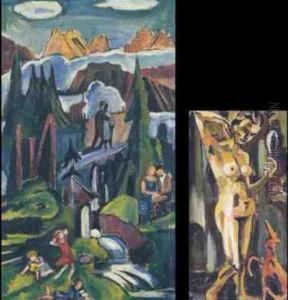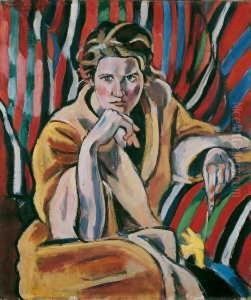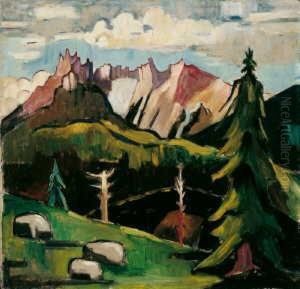Helmut Macke Paintings
Helmut Macke was a German expressionist painter whose life and career were cut tragically short by the outbreak of World War I. Born on January 21, 1891, in Krefeld, Germany, into a family with a rich artistic background, his cousin was the famous August Macke, a leading figure in the German Expressionist movement. This familial connection played a significant role in Helmut's early exposure to the arts and significantly influenced his career path. Despite his relatively brief career, Helmut Macke managed to carve out a unique space for himself in the German art scene of the early 20th century.
Macke's artistic journey began at a young age, showing considerable talent and enthusiasm for painting. He pursued formal art education, which further honed his skills and understanding of modern art movements. His style was notably influenced by the vibrant color palette and dynamic compositions of German Expressionism, a movement that sought to express emotional experience rather than physical reality. Yet, his work also displayed a distinct personal touch, characterized by a nuanced handling of light and shadow and a tender portrayal of everyday scenes and landscapes.
The outbreak of World War I in 1914 brought a tragic end to Helmut Macke's promising career. He was drafted into the German army and was killed in action in France, on April 24, 1914, at the young age of 23. Despite the brevity of his life and career, Macke's artwork provides a poignant glimpse into the pre-war European art world and stands as a testament to the lost potential of many young artists of his generation. His body of work, though limited, is celebrated for its contribution to the development of Expressionism in Germany and continues to be studied and appreciated for its emotional depth and aesthetic innovation.
